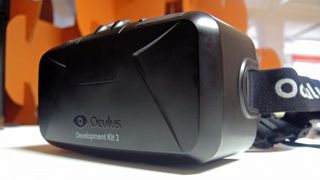How to build a PC ready for Virtual Reality
Virtually Prepared
For something as demanding as rendering two stereoscopic images for VR, the recommended specs from Oculus aren't actually that crazy. In fact, our mainstream PCs that we use for reviewing games on have already been up to doing the job for many a month, and only the shift to Nvidia's Maxwell 2.0 architecture rules out some older builds.
That's simple enough to fix, of course, as swapping graphics cards is one of the easiest upgrades you're likely to make. From the perspective of many readers, then, Oculus is already within reach.
What will be interesting to see is how game developers leverage the available hardware, and that's always been a sticking point in the console versus PC debate. By defining a relatively high recommended system, Oculus opens the doors for full DX12 support and advanced rendering features.

But developers often want to up the available installation base, so they create lower-quality rendering paths. Considering the Oculus Rift shipping hardware is likely to cost at least £200 ($293, AU$415), however, it's not too much to expect gamers to have commensurate hardware elsewhere.
The final Rift hardware is now shaping up, and it will include an Xbox One controller. Oculus has also revealed an Oculus Touch controller, but that will ship after the initial hardware.
We have the Oculus Rift DevKit 2 (DK2), and setting it up can be really frustrating – getting the head tracking to work, in particular, was certainly more difficult than it should be.
The final hardware now includes a desk-mounted sensor that we're hoping will be easier, not to mention a single cable to the headset for audio, video, data and power. The combination should help reduce the space requirements, but for a standing-up experience, you'll need a decent amount of room.
Get daily insight, inspiration and deals in your inbox
Get the hottest deals available in your inbox plus news, reviews, opinion, analysis and more from the TechRadar team.

While there's a lot of potential in VR, it's a chicken-and-egg dilemma. Developers need hardware in the hands of more consumers to make money creating games. Consumers, however, want compelling software before they buy expensive hardware.
And everyone wants the entire experience to be as hassle-free as possible. When we consider the competing hardware and platforms, such as HTC Vive Pre, HoloLens, PlayStation VR, OSVR and Samsung Gear VR, it becomes far less clear who'll win this shootout.
Oculus kick started – or Kickstarted – the current VR craze a few years back, but it isn't the only game in town. It remains to be seen whether we'll have multiple complementary platforms or a single winner-take-all solution. As exciting as virtual reality is, no one wants to get stuck owning a virtual Betamax setup.
